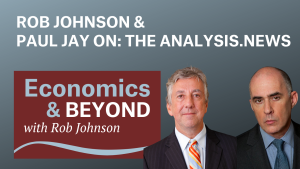A Response to Heiner Flassbeck’s questions about the Institute’s Council on the Euro Crisis
In the Financial Times Deutschland on Aug. 1, Dr. Heiner Flassbeck raised some serious questions about the INET Council on the Euro Crisis (ICEC) and its diagnosis and prescription for euro-zone change. I welcome the challenge of such a creative thinker as Flassbeck and am interested in the remedies that he proposes to heal the patient called Europe.
Flassbeck feels that the ICEC’s initiative may have come too late to save the euro zone. I share that fear. He goes on to say that “the ICEC signatories are caught up in the most obsolete thinking patterns the world knows.” It is this latter claim that I take issue with. (Although I also write this with the caution that I have only seen an English language translation of what Flassbeck wrote in German.)
But before addressing his proposed remedy, which focuses on wages, I would like to address his criticism of the ICEC, in particular his challenge to the importance of capital flows and to how relative unit-labor costs have diverged in the different countries within the euro zone.
Flassbeck seems to believe that within a monetary union capital flows are harmless simply because there is a common currency. But this is clearly not the case. Because capital flows are not always based on rationality and foresight, they are subject to the emotional waves of optimism and pessimism that create boom- and-bust cycles. Flassbeck is right to point out that these problems often lead to wild gyrations in currency markets when they take place between regions that are not within a monetary union.
But where we differ is that I believe that within a monetary union the large capital inflows associated with optimism (or neglect of dangers) moving to particular countries or regions can still create expansions of demand there that lead to large changes in relative prices between traded and non-traded goods.
Even in a monetary union, when optimism turns to pessimism and capital flows dry up we see the “sudden stop” in capital that creates an economic slump within a country or region, and the goods prices and wages in many sectors do not adjust instantaneously to the cut off of credit and precipitous decline in demand that ensues. In fact, within the monetary union the pain may be even more severe because the depreciation of the exchange rate of the region that sees the capital dry up and flee is not available to stimulate demand from abroad.
A monetary union fixes one price, the nominal exchange rate. It does not fix the real exchange rate, viewed as a basket of goods comprised of both tradables and non-tradables. It is against this basket that real wages are measured. With a common monetary union and free capital mobility encouraged by lack of adequate banking supervision and regulation, there are very strong intra-zone capital flows that produce exactly the distortions that Flassbeck believes do not exist, and just having a common monetary policy is not sufficient to prevent them.
Flassbeck’s second claim is that capital flows cannot be at the core of the problem because the deficit countries suffer from different ailments. Again I must heartily disagree. He is right that the deficit countries had different problems. But capital inflows acted as an anesthetic that masked and exacerbated many of these problems.
Greece, and to a large extent Portugal, had fiscal discipline problems. Spain had a private-sector real-estate boom. Ireland had a banking problem. In each case these problems were made worse by exuberant capital inflows that deepened the distortions and prolonged them so that when the sudden stop took place the resulting distortions and adjustments needed were extreme to the point of being unfeasible. This is particularly acute when intra-zone labor mobility is quite limited, as it is in Europe, in which case the pain that results leads to social unrest that can be unbearable and unsustainable socially.
Italy is the most interesting case. There, the flaws in the ECB’s mandate (most clearly illuminated by ICEC member Paul De Grauwe of the London School of Economics) are very important. Italy shows that a country that has a large outstanding debt can be driven toward a self-fulfilling default and unsustainable austerity by capital markets when the central bank does not ward off this outcome by purchasing government debt.
Because of this structural flaw, each country in the monetary union is akin to a country that has borrowed in a foreign currency. Its sovereign debt can be held hostage by the capital markets, and only a central bank can induce the markets to choose a sustainable trajectory rather than the death spiral of higher interest rates driving up deficits and debt that in turn increases the risk premium, which further feeds austerity, decline, and rising debt.
In the United States, another monetary union, there are markedly different inflation rates between states. The U.S. has seen booms and busts in Texas when the oil price goes up and down while Detroit has been going down for 30 years, and yet the all states have same monetary policy set by the Federal Reserve. But because the U.S. is a complete fiscal union its states do not have the balance of payments asymmetries that European nations within the euro zone do.
Capital flows do not logically need to be a driver in each and every imagined scenario, and this is not anything the ICEC or I would ever claim. But they did play a profound role in this instance.
Flassbeck’s critique also makes the absurd claim that a group like the ICEC cannot be expected to produce answers to his questions because it and INET are inherently fearful of putting the topic of wages up for discussion. But, contrary to his assertions, I am not afraid to talk about this topic.
INET wants to open these political and economic perspectives to the bright light of debate in order to overcome taboos and understand why things are the way they are. We were founded because we believe that so much of what is called mainstream economics is lacking and too deferential to the contours of power, particularly financial power. It is because of that sense of mission and purpose that I take serious offense at his suggestion that we are deterred from vigorous investigation by the intimidation pressures of class power.
Flassbeck’s questions were not answered because they were not asked until now. They were not avoided out of some kind of fear that we are spoiling the secrets of class warriors from above or blind to looking at social process for fear of offending power.
So let us now turn to wages. Wages and productivity growth are both ingredients in measuring real appreciations and depreciations when the nominal exchange rate is fixed. That is a statistical fact. It also appears, from many studies of many regions over time, that so-called internal devaluations to correct misalignments in competitiveness are difficult to achieve and potentially impossible without rupturing the social fabric. On that the ICEC, Flassbeck, and I agree. Anyone who reads the report can see that.
Additionally, I do not believe, nor do I suspect the ICEC members believe, that there is an independent labor market where wages are determined by the principle of supply and demand. Rather, I believe there is an interdependent market where wages are set and influenced by social customs, institutional structures, and things like credit expansions and contractions.
It is precisely the interdependence between capital markets and transitory demand booms and their irreversible impact on wages that is at the core of the European story. Wage setting is a social process but a prolonged and deep slump caused by a sudden stop in capital flows does have influence on wages and prices. A real-estate boom fueled by capital flows or fiscal stimulus financed by foreign capital inflows also can impact demand. It appears that it is Flassbeck rather than INET or the ICEC who is suggesting that the labor market is somehow strangely independent of influences like capital flows!
I also agree with Flassbeck that recent restraint in German wage growth relative to the wage growth in the deficit countries is a source of the change in competitiveness within Europe. I am intrigued by the suggestion that wage setting within the region as a social policy might be a good institutional reform that allows for greater alignment within the monetary union. I would welcome a rise in German wages in the present circumstances, as that would reduce the competitive imbalance without requiring prolonged austerity and possibly deflation in the deficit countries.
The problem I see is that without acknowledging economic dynamics like booms and busts in capital flows, one is looking at wages while excluding all of the things that destabilize a wage policy. For instance, without reforming the ECB’s mandate to include maintaining demand and employment along with price stability, the euro zone is unlikely to establish a humane and sustainable wage. Wages cannot be sustained relative to profits in any economy that doesn’t maintain a commitment to full employment. The devil of rentier capitalism defining the priorities (in technical terms, the “reaction function”) of the ECB is a problem we must overcome together.
I know that the word “new” in Institute of New Economic Thinking places weight upon our shoulders. Perhaps a better name would have been Institute for Sound Economic Thinking, for it is sound economic thinking relevant to the real challenges faced by humanity that we strive to produce. Newness only matters to the extent that prevailing economic thinking is off course and must be renewed. The proof is in the pudding with the ICEC report, which already has had a significant impact on the euro-zone debate.
It is my hope that a creative mind like Flassbeck’s will do a better job of seeing who his allies and enemies are, and in the future spend more time on the analysis of these problems and less energy on rhetorical flourish and accusations directed toward people who I suspect seek the same ends he does. It is precisely these diversionary squabbles that distract us all and foster the continued sleepwalking toward disaster in Europe that we all desperately aim to avert.






